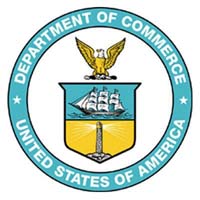
WASHINGTON (Department of Commerce PR) — The United States Departments of Commerce (DoC) and Defense (DoD) have signed a Memorandum of Agreement (MOA) formalizing the organizations’ relationship for basic space situational awareness (SSA), space traffic management (STM), and coordination for civil and commercial entities. The agreement defines how the two departments will work cooperatively to implement the National Space Council’s Space Policy Directive 3 (SPD-3). SPD-3 seeks to advance SSA and STM science and technology; provide federally-supported basic SSA data and STM services to the public; and improve SSA data interoperability to enable greater SSA data sharing.
“Establishing and maintaining coordinated SSA and STM technology, data, and services for civil and commercial entities is the foundation of the Department of Commerce’s efforts to ensure the continued safe and sustainable growth of the commercial space industry,” said Under Secretary of Commerce for Oceans and Atmosphere Rick Spinrad, Ph.D., who signed the MOA on behalf of the Department of Commerce. “We are pleased to partner with DoD on this important and timely effort as we collectively support new services, research and innovations to further our vision of a sustainable space environment for all.”
The MOA was also signed by Assistant Secretary of Defense for Space Policy Dr. John Plumb, and the leadership of the United States Space Force and United States Space Command (USSPACECOM).
“We are pleased to partner with DoC on this effort and look to broaden our relationship with industry, allies, and partners to help achieve the objectives of SPD-3. We also take this opportunity to encourage and invite commercial or other partners who can assist in this effort,” said Dr. Plumb.
Every day, space is becoming increasingly congested, a trend that challenges the safety, security, stability, and sustainability of space. USSPACECOM currently tracks and catalogs more than 40,000 objects in space larger than 10 centimeters, but this number is dramatically increasing as new, more-capable sensors come online, as analytical processing increases, and as the volume and complexity of commercial activities in space grows.
These changes have further elevated the need for increased capabilities for transparent data and information exchange. In addition, the contested nature of space operations is increasing demand for USSPACECOM to concentrate its resources on ensuring the security and safety of national security assets in space.
Both DoC and DoD recognize the need for new approaches to coordinate and manage space activities in an accessible and meaningful way for the private sector will help maintain U.S. economic leadership in space.

